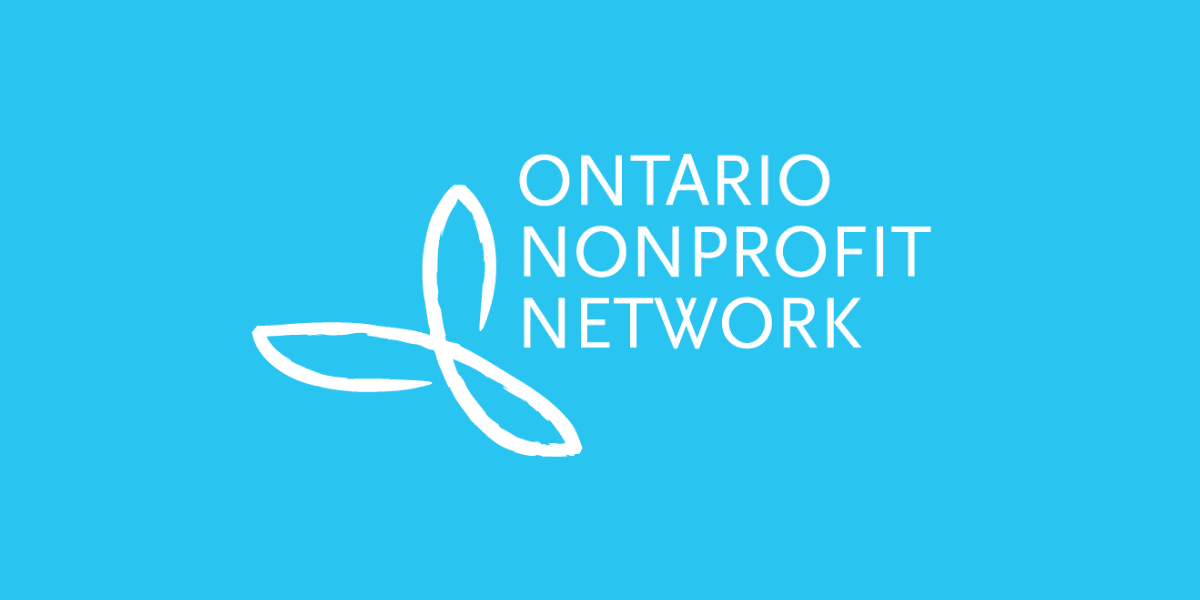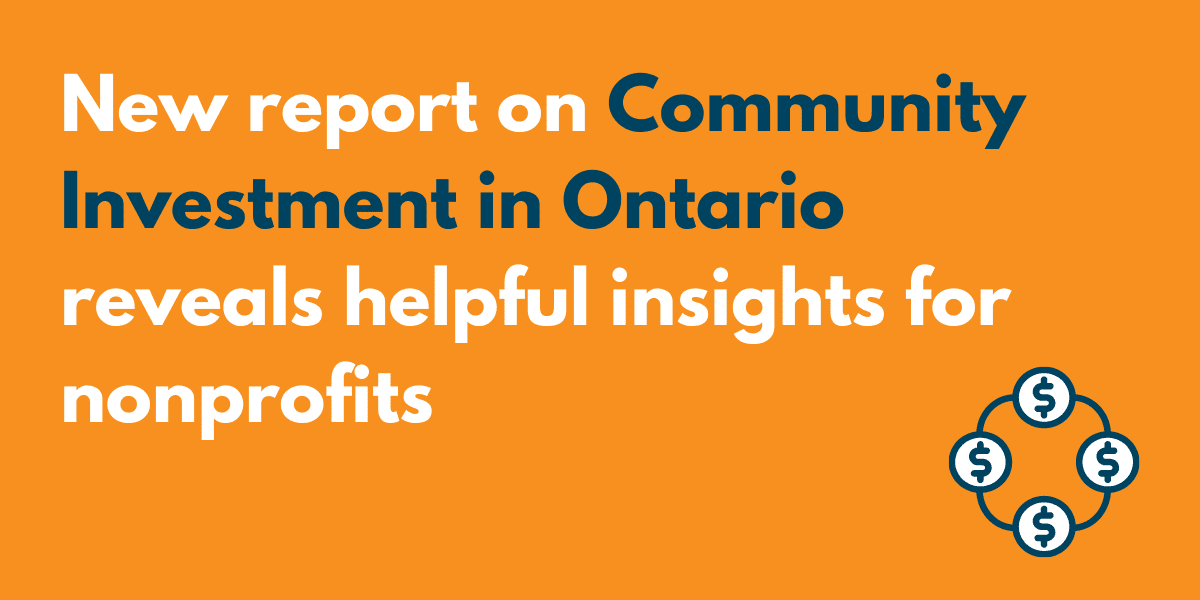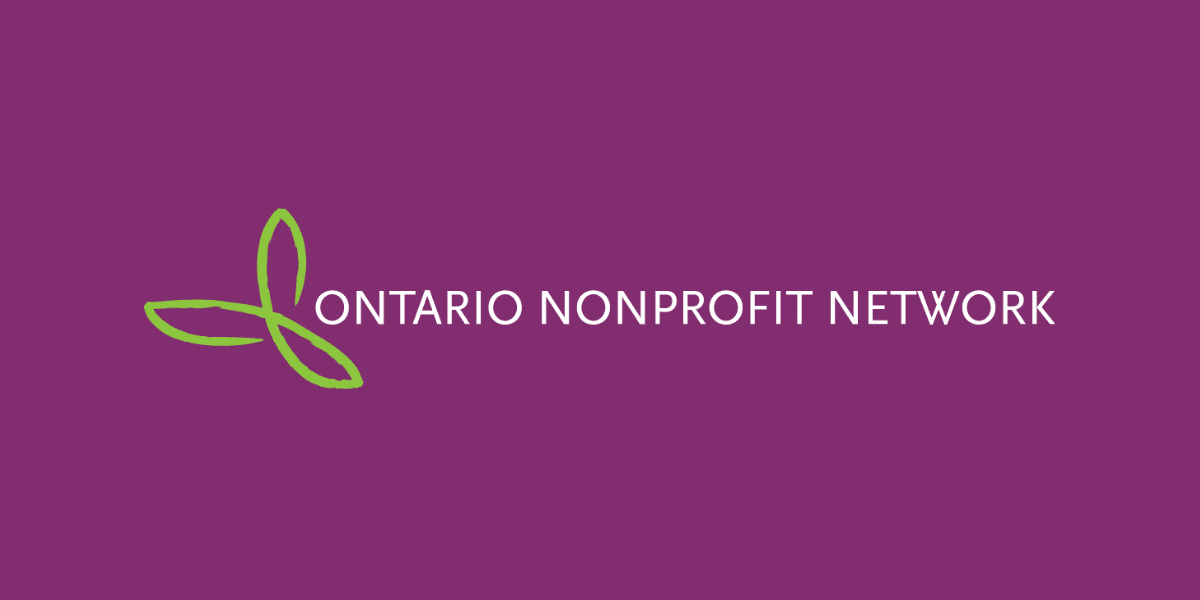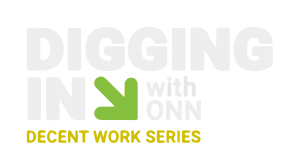Building wealth for our communities
There is a need for capital investment in community-owned nonprofit structures so that these enterprises can continue to create jobs, innovate, scale up social enterprises, deliver essential services in communities, and take advantage of market opportunities.
Amidst growing inequality and household debt levels, coupled with rising social polarization and distrust in government, nonprofits are under increasing strain to meet demands for community services while performing their traditional function of building community cohesion and bridges to the public policy process. In other jurisdictions (and to a limited extent in Ontario), nonprofits are finding ways to address these challenges by engaging people in community ownership of critical services like housing, food, and energy, which helps to keep the wealth generated by communities circulating in the local economy so it can serve local needs instead of being extracted for shareholder profits.
Public benefit nonprofits (charities, cooperatives, and other nonprofits) should be supported to scale up these local economic development initiatives that put community well-being first and provide opportunities and dignity for local residents. To do so, they need access to financing and investment mechanisms so they can amplify what’s already happening in a few communities. However, lenders are reluctant to lend to nonprofits with few assets or uncertain or modest revenue streams and are hesitant about business models they often don’t understand or appreciate. There is a central role for the provincial government to offer or facilitate capital investment, including via the Infrastructure Ontario Loans Program. Eligibility for this program was expanded six years ago to certain parts of the nonprofit sector but it still remains inaccessible to others, including arts and culture groups, employment services, and nonprofit social enterprises.
At the same time, some public and private investors are interested in investing in the nonprofit sector for a social and financial return. It is important that new “social finance” mechanisms primarily support nonprofit social enterprises and do not end up subsidizing private investment. There is a clear need for community-led, nonprofit intermediaries (similar to the $25 million RISQ, Reseau d’Investissement Social du Quebec, and the Quebec sector’s $50 million “patient capital” fund, Fiducie) to link small- and large-scale capital with local and emergent nonprofit enterprises that need investment.
ONN’s vision: Nonprofits have access to new and more accessible investment mechanisms so they can support the growth of community wealth and well-being
With an enabling policy environment, Ontario nonprofits are empowered to leverage their collective assets – like buildings, reserve funds, and investments – to generate community-driven investment in more inclusive, equitable forms of local economic development. Community-driven finance initiatives (such as community bonds) connect individuals who would like to invest their dollars locally with community-led enterprises – such as arenas, food hubs, community kitchens, community-owned co-working spaces, housing, and energy cooperatives. Public benefit nonprofits are categorically eligible for the Infrastructure Ontario Loans Program. The government actively facilitates the vibrancy, diversity, and scaling up of nonprofit social enterprise through business development supports and an enabling regulatory environment.
Steps we’re taking to meet that vision
We’re advocating for the Ontario Government to:
- Expand nonprofit access to provincial capital funding and low-cost loans via the Infrastructure Ontario Loans Program so that all categories of public benefit nonprofits are eligible
- Develop and promote a Community Finance Policy Framework for Ontario to advance locally driven community investment mechanisms (like community bonds) for individuals with savings, nonprofits with assets, and other institutions to channel investments into public benefit nonprofits
We’re working with the Ontario nonprofit sector to:
- Convene the “Community Wealth Building” network to provide a forum for nonprofits and cooperatives to develop a shared understanding of our role in fostering a more inclusive economy
- Update and continue to promote our Policy Blueprint for Strengthening Social Enterprise in the Province of Ontario
- Foster social procurement by governments, nonprofits, and other purchasers, including through Akcelos, the national marketplace for social purchase
- Convene a Community Finance working group and connect nonprofits holding assets with intermediaries in the sector and those looking to test these finance mechanisms to grow the nonprofit and collaborative economy, as part of Toronto Neighbourhood Centres’ Inclusive Economies project
- Develop a better way to measure the impact of social enterprise through the Common Approach initiative
We’ve written an in-depth policy document arguing ownership of critical community infrastructure is the best way to ensure key community assets and services are not lost or diminished through profit-seeking pressures and the sale of capital assets. Read Not for Sale: The Case for Nonprofit Ownership of Community Infrastructure and Services.
Community wealth building in action
More and more communities are addressing the wealth leaking out of their local economies by trying out community wealth building strategies, like community land trusts, community finance, anchor institutions, and cooperative, nonprofit, and other locally-owned enterprises.
For instance, the Southern First Nations Secretariat, based in Bothwell, Ontario, wants to stop money from flowing out of the seven First Nations communities it represents, having found that about $200 million leaves the community annually at the household level and about $38 million at the government level.
In Toronto, the Parkdale Neighbourhood Land Trust removed a rooming house from the for-profit market with help from the municipality, and Toronto Neighbourhood Centres has started an Inclusive Economies project. The St. Jamestown Community Coop is also starting a timebank economy and integrated community food system.
In the community energy sector, TREC has released a report on Evolving Business Models for Renewable Energy Coops.
Related Resources
- Wondering what you can do to advance community wealth building in Ontario? Here are 6 crucial steps nonprofits can contribute to
- New to community wealth building and don’t know where to start? This bibliography will give you an essential reading list for a solid foundation.
Community wealth building webinar series
Community wealth and community capital is being created throughout Ontario via social procurement. Buy Social Canada has partnered with ONN, Canadian CED Network, Ontario Trillium Foundation and AnchorTO on a webinar series to strengthen and connect the social procurement and social enterprise ecosystems across Ontario. The series aims to enhance organizational and individual capacity, strengthen awareness, share public policy models, identify and explore future social procurement ecosystem opportunities. Check out these resources from the webinar series.
- Final Report
- Case Study 1. Building the Supply Side Through Social Enterprises
- Case Study 2. Building the Demand Side by Purchasing
- Case Study 3. Building Demand Side through Construction Projects
- Case Study 4. Building Community Capital and Community Wealth
ONN gratefully acknowledges the support of the Metcalf Foundation for their contribution to this collaborative project.








